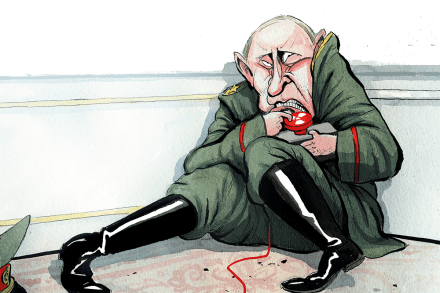Cornered: what will Putin do now?
41 min listen
In this week’s episode: For the cover of the magazine, Paul Wood asks whether Putin could actually push the nuclear button in order to save himself? He is joined by The Spectator’s assistant online editor Lisa Haseldine, to discuss (01:03). Also this week: Why is there violence on the streets of Leicester? Douglas Murray writes about this in his column this week and we speak to journalist Sunny Hundal and research analyst Dr Rakib Ehsan about what’s caused the disorder (13:44). And finally: Is three – or more – a crowd? Mary Wakefield discusses the poly-problems or polyamory in her column in The Spectator and is joined by comedian Elf Lyons, who has written





















